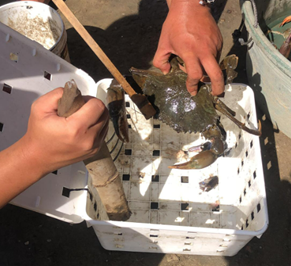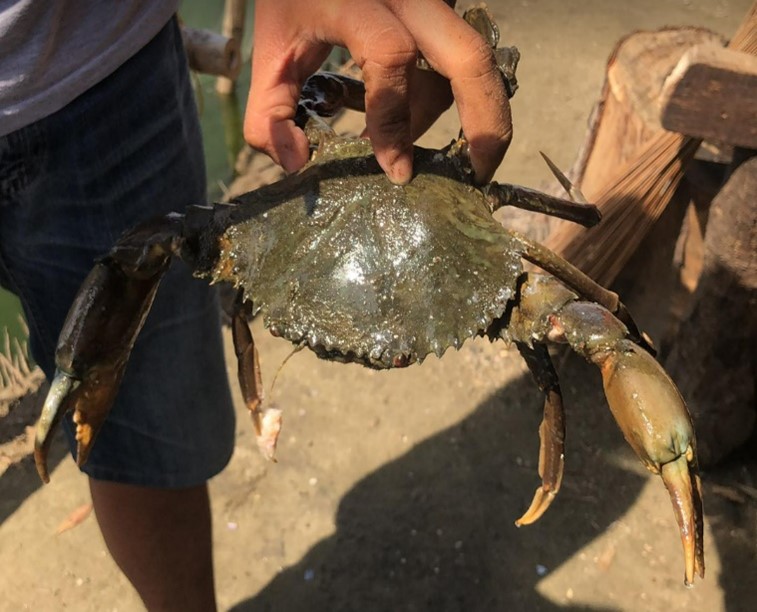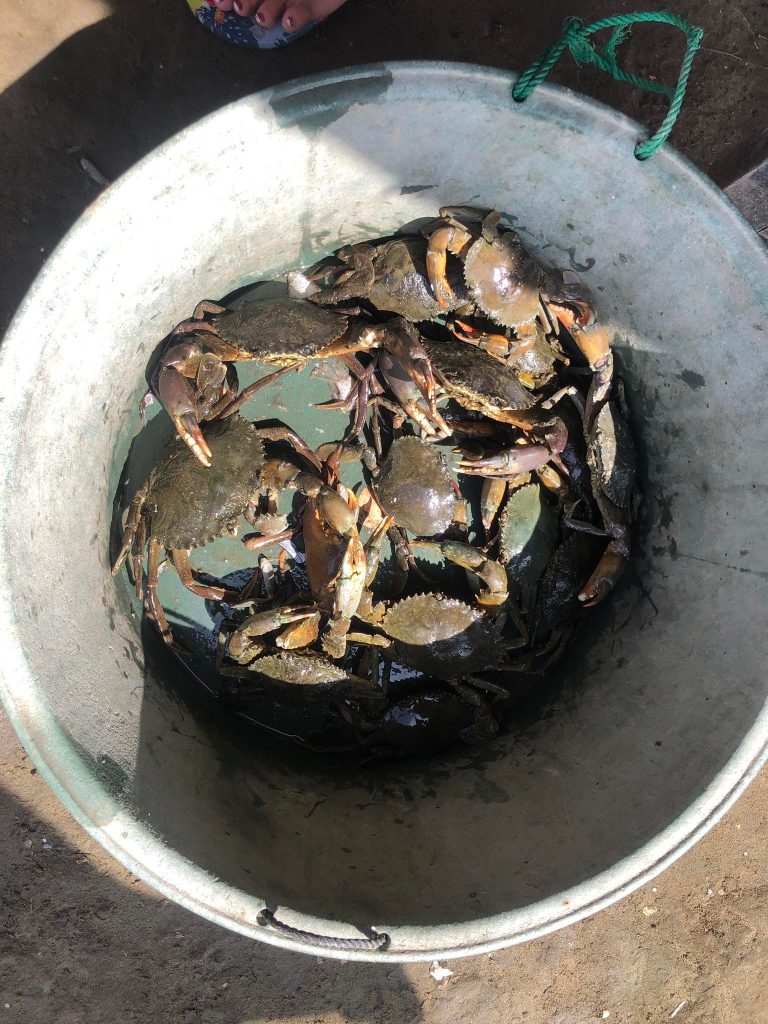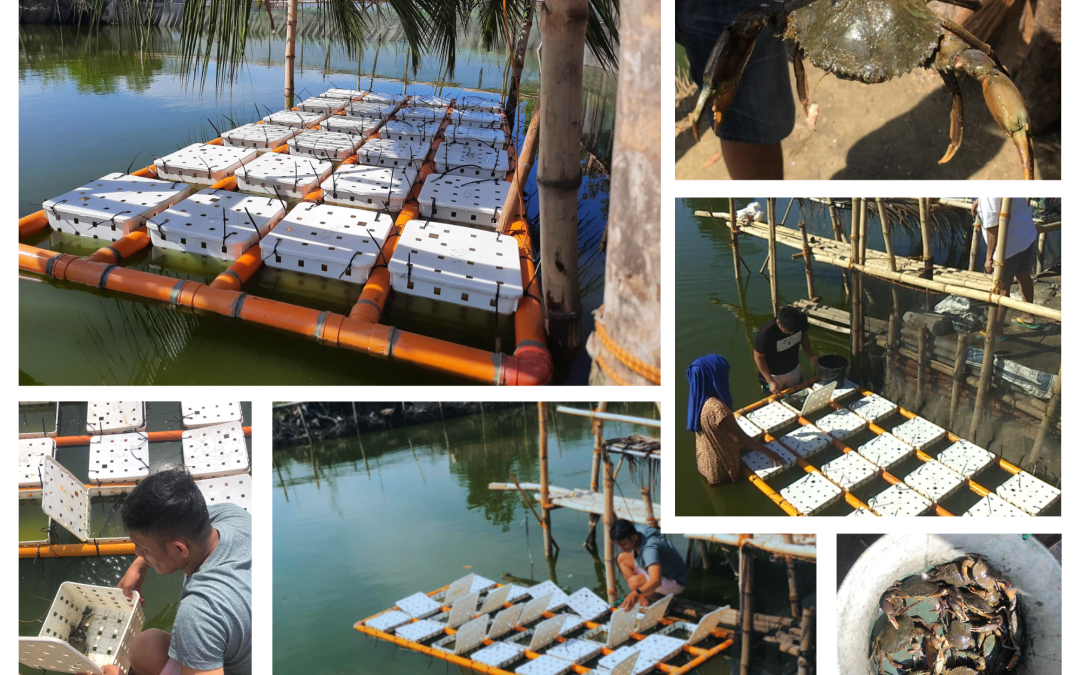With the increasing demand of mangrove crab (Scylla serrata) both in the local and international markets, the College of Fisheries and Environmental Sciences (CFES) researchers spearheaded by their Dean Dr. Rosie S. Abalos, conducted a study on the “Culture of Mangrove Crab (Scylla serrata) Fed with Low-Cost Alternative Protein Sources in Plastic Crates Suspended in Brackiswater Ponds.” Cognizant with the crab’s cannibalistic characteristic, the crabs are cultured in individual plastic crates fed with various feeds; commercial, trash fish, Charru mussel and Tilapia (Sarotherodon melanoteron) for 120 days.
A total of 24 pieces, 12 males and 12 female crablets, with more or less match box sizes were used in this study. These were placed individually in the twenty four (24) plastic crates measuring 1 x 1 feet. These crates were anchored/framed in a PVC pipe and served as floater. A cut-walk made of bamboo was constructed to serve as feeding and monitoring area. Monthly sampling was done to measure the size (carapace width and length) and weight of the crabs.
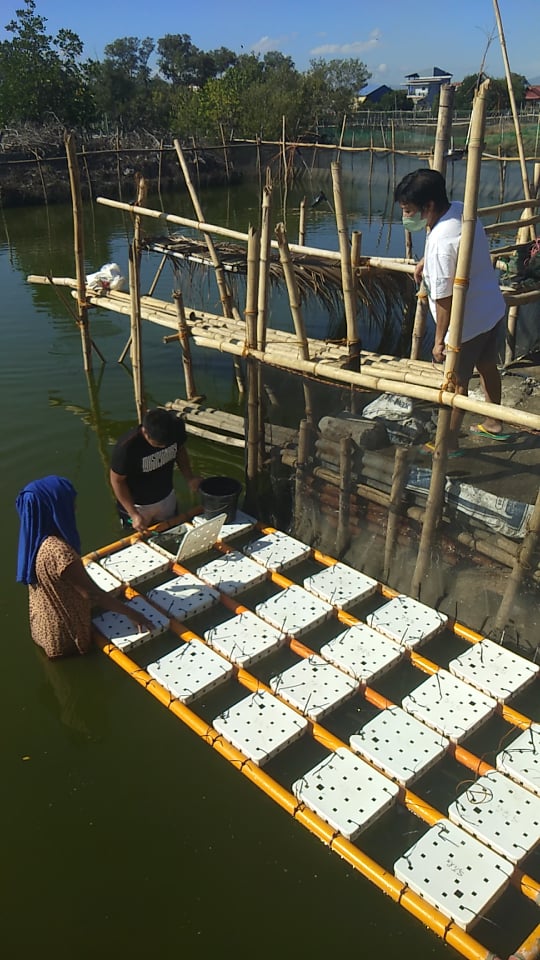
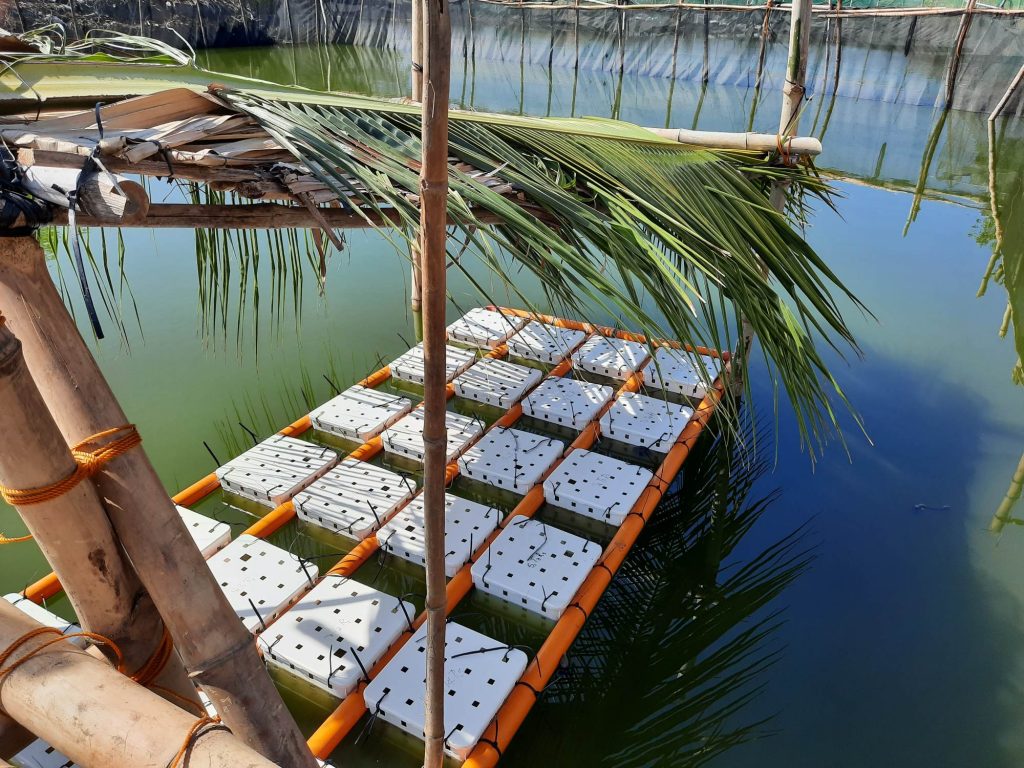
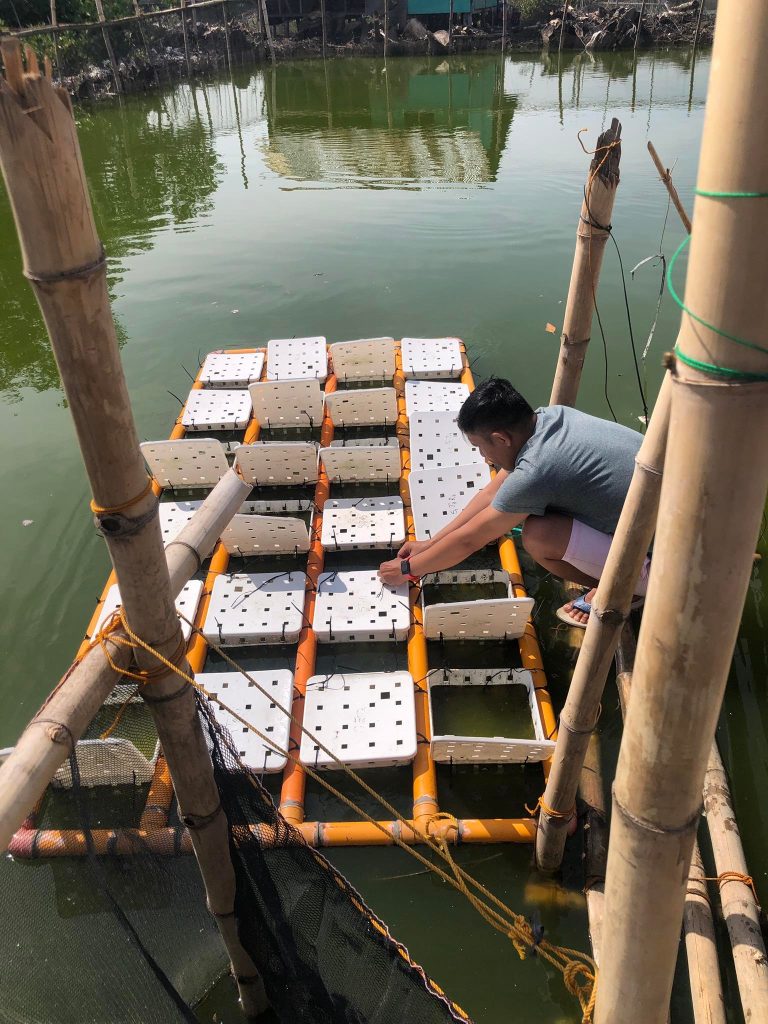
Initial sampling showed remarkable growth of the cultured crabs and no mortality was recorded. The success of this study will pave way to increase crab production and benefit fish farmers in their pond production as it can be undertaken simultaneously with their usual cultured species.
